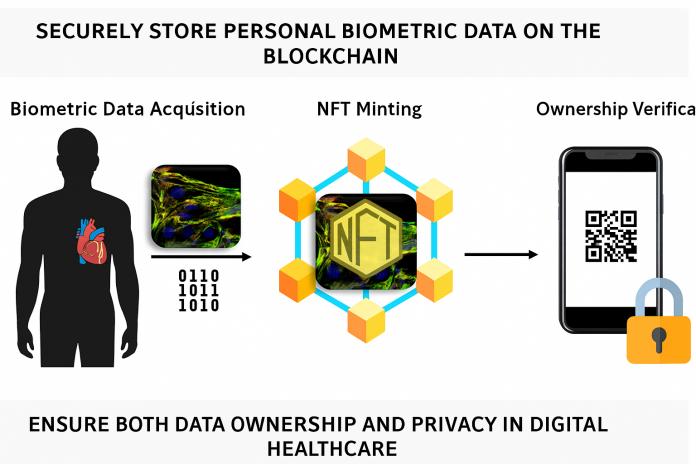
In a groundbreaking development, a research team led by Professor Jin-Ki Hong from Yonsei University’s Department of Chemical and Biomolecular Engineering has created the world’s first technology to mint and distribute biometric data as Non-Fungible Tokens (NFTs) on the blockchain. This innovation marks a major leap forward in digital healthcare and data sovereignty.
The project, conducted in collaboration with Professor Joo-Hyun Park of Kangwon National University and Professor Sang-Min Lee of Chung-Ang University, aims to fundamentally redefine how personal medical data is stored, verified, and shared. The newly developed system ensures both the authenticity and security of sensitive biometric data, while granting individuals direct ownership and control.
The researchers successfully collected real biometric data from human-derived cardiac cells, encrypted the data using a proprietary algorithm, and issued it as NFTs on a blockchain network. This enables users to securely store their health data and, when needed, transparently share it with trusted third parties without concerns of tampering or data breaches.
Most notably, the technology introduces the concept of data sovereignty into the healthcare sector. Traditionally, medical data has been stored and controlled by hospitals or institutions. Through this blockchain-based NFT system, individuals can now own, manage, and utilize their health data independently — a shift the researchers describe as “a turning point for decentralization and personalization in medical information.”
The study was published in the May 2025 issue of Scientific Reports (Springer Nature) and has demonstrated strong potential applications in precision medicine, digital therapeutics, telemedicine, and the trusted sharing of health data across platforms.
“This technology not only enhances the security and utility of biometric information but also presents a new paradigm for privacy protection and personalized healthcare,” said Professor Hong. “We anticipate that future versions will incorporate a broader range of biometric data and be applicable across diverse medical domains.”
The innovation is expected to accelerate the expansion of the digital healthcare industry and establish a robust framework for individual-centric data control. Ongoing research will focus on regulatory alignment and commercialization strategies for real-world implementation.






